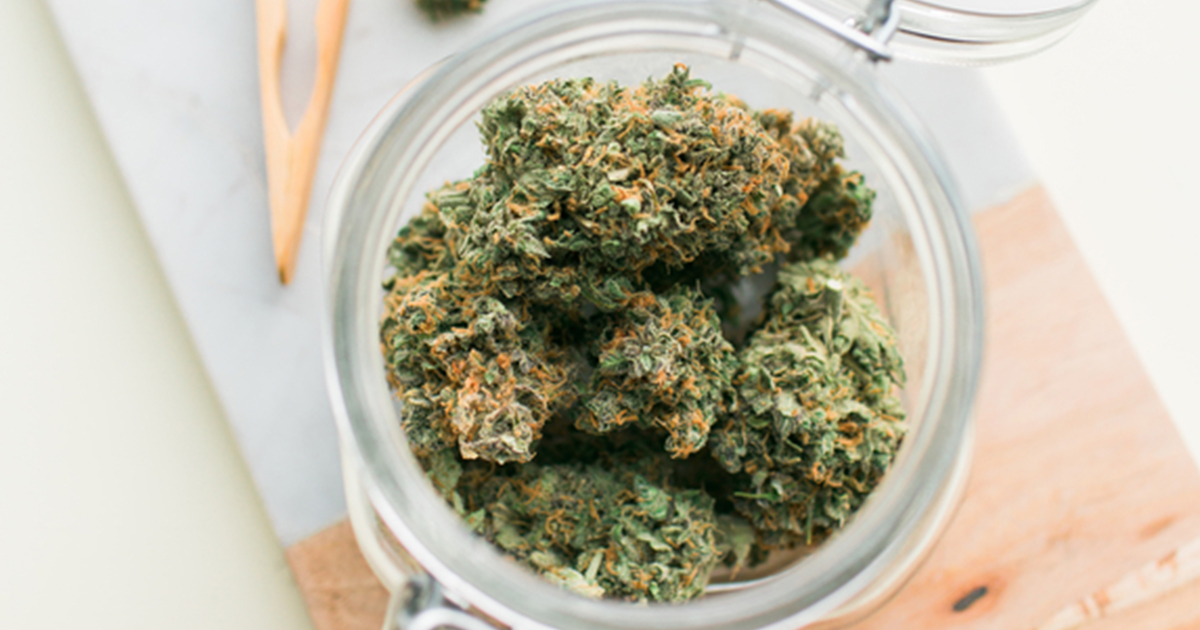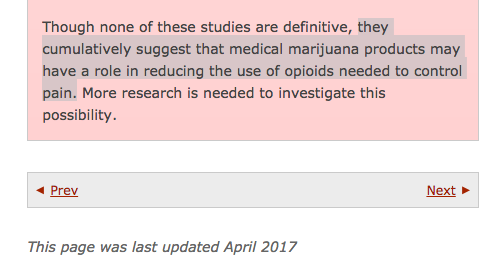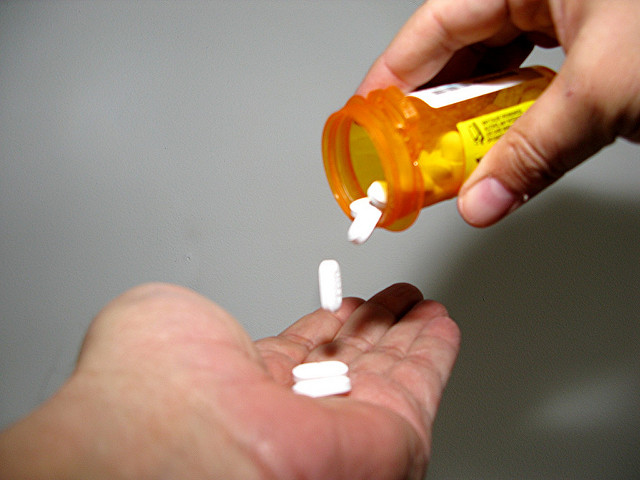Federal Agency Admits That Marijuana Could Curb Opioid Addiction

By:
After years of skepticism and outright denials, one of the federal government's lead drug researchers may be coming around on the rehabilitative power of marijuana.
 Stocksy/Cameron Zegers - stocksy.com
Stocksy/Cameron Zegers - stocksy.com
As first reported by MassRoots political correspondent Tom Angell, the National Institute of Drug Abuse (NIDA) now states on its website that three recent studies, two of which it funded, suggest "medical marijuana products may have a role in reducing the use of opioids needed to control pain."
 NIDA
NIDA
Marijuana advocates see this as a significant admission from NIDA, which has insisted in the past that marijuana's potential benefits are outweighed by its negative side effects and stated that its use may "cause problems in daily life or make a person's existing problems worse."
Legalization advocates and certain lawmakers such as Sen. Elizabeth Warren (D-Mass.) have touted marijuana reform as a way to curb opioid abuse in the midst of a national epidemic. But the federal government has been slow to respond to mounting evidence that doctors prescribe fewer opioids and there are less opioid-related overdoses in states where the plant is legal. The website update is one of the first signs of a shift in the federal government's view on the issue.
Three studies appear to have served as the basis for NIDA's admission. Here's what it took to convince them.
 Flickr - flickr.com
Flickr - flickr.com
1. "Medical Cannabis Laws and Opioid Mortality," Journal of the American Medical Association (JAMA) Internal Medicine.
- In 2014, researchers at the University of Pennsylvania confirmed long-held suspicions that providing patients access to cannabis, which has been shown to treat pain, would be less inclined to use dangerous and addictive prescription painkillers.
- On average, states where marijuana was legalized experience about 25 percent fewer fatal overdoses from opioids than non-legal states, the NIDA-funded study showed.
- The trend seemed to grow year-over-year. The first year after legalization, the fatal overdose rate declined about 20 percent; after five years, these states saw about 34 percent fewer opioid-related overdose deaths.
2. "Do Medical Marijuana Laws Reduce Addiction and Deaths Related to Pain Killers?" RAND Corporation
- Another NIDA-funded study conducted by researchers at the centrist think tank RAND found evidence that medical marijuana legalization led to fewer fatal opioid overdoses. It also offered new details about the effects of legalization on opioid use.
- States where medical marijuana was available experienced 16 to 31 percent fewer fatal opioid overdoses compared to non-legal states. Again, the trend indicates that overdoses declined more the longer a legalization system was in place.
- Hospital admissions due to opioid use also declined 28 to 35 percent in legal states compared to non-legal states.
- "[Legal marijuana laws] will make it easier for such patients to obtain and use marijuana, and so reduce their reliance on opioids to manage their pain," the researchers concluded. Also, in these states "recreational drug users may find marijuana simpler and less risky to divert than prescription opioids."
3. "Medical Marijuana Laws Reduce Prescription Medication Use In Medicare," Health Affairs
- A 2016 study published in the journal Health Affairs looked at the relationship between marijuana legalization and prescribing trends based on Medicare prescription data from 2010 to 2013. Researchers found that people filled fewer prescriptions for conditions for which marijuana could be used as an alternative treatment option in legal states.
- Medicare prescriptions for drugs that treat pain, anxiety, sleep disorders, seizures, nausea, and depression dropped significantly in the years following medical marijuana legalization.
- The decline in prescriptions covered under Medicare amounted to $165 million in savings in 2013 alone, the study determined. If marijuana was legal nationwide that same year, the researchers estimated that the total Medicare savings would be about $470 million.
 Stocksy/Mihael Blikshteyn - stocksy.com
Stocksy/Mihael Blikshteyn - stocksy.com
"It’s hard to overstate the importance of a statement like this coming from federal agency whose mission over the past several decades has seemingly been to generate and promulgate data inflating the harms of marijuana and other other drugs," Angell, who is also the founder of the legalization advocacy group Marijuana Majority, told ATTN:.
Angell said that NIDA's update should send a message to Attorney General Jeff Sessions, whose anti-marijuana beliefs have been a point of concern for advocates.
"When even NIDA is ready to admit that marijuana seems to hold great promise to reduce opioid issues, it’s going to be much harder for Jeff Sessions to continue going around claiming the opposite," he added.
NIDA did not respond to requests for comment by the time of publication.
